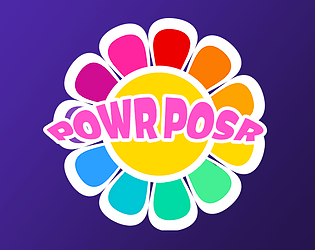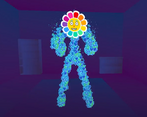Play game
PowrPosr's itch.io pageSummary of Approach
We have built a self-positivity VR experience to increase of positive emotions and feeling of powerfulness in adolescents through the adoption of expansive bodily postures called power poses.
Subject-Matter/Problem Background
Embodiment interventions are nonverbal experiential techniques that use the posture and movement of the body as a way to generate positive emotions. Power posing is a simple and effective manipulation that increases positive emotions and reduces negative body image. The manipulation is simple, short, and ideal for everyday practice and can help adolescents feel more powerful and positive about their bodies.
XR Platform
Oculus Quest
Project Presentation
https://docs.google.com/presentation/d/16sLwCMynFoaZJdXZA7GnlXElcVNl6lzy5S9FWbuFVPE/edit#slide=id.g3a1c092384_0_0
Research or Subject-Matter References
"Your body language may shape who you are" Ted Talk by Amy Cuddy: https://www.ted.com/talks/amy_cuddy_your_body_language_may_shape_who_you_are?language=en
Carney, D. R., Cuddy, A. J., & Yap, A. J. (2010). Power posing: Brief nonverbal displays affect neuroendocrine levels and risk tolerance. Psychological science, 21(10), 1363-1368.
Miragall, M., Etchemendy, E., Cebolla, A., Rodríguez, V., Medrano, C., & Baños, R. M. (2018). Expand your body when you look at yourself: The role of the posture in a mirror exposure task. Plos one, 13(3), e0194686.
Peña, J., & Chen, M. (2017). Playing with power: Power poses affect enjoyment, presence, controller responsiveness, and arousal when playing natural motion-controlled video games. Computers in Human Behavior, 71, 428-435.
Full Credits for all of the Team Members and Contributors
Jonathan Ogilvy: Producer
Veronica Weser: Research
Lisa Lokshina: UX
Saul Pena Gamero: Developer
Scott Tongue: Developer
David Lobser: Developer
David Gochfeld: Developer
Leave a comment
Log in with itch.io to leave a comment.







Comments
No one has posted a comment yet